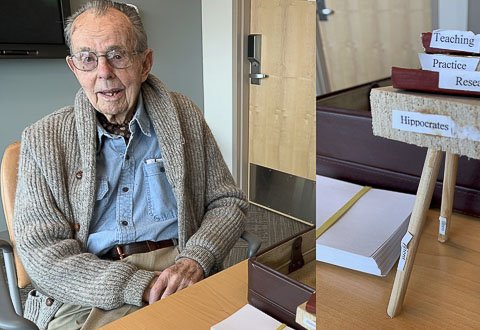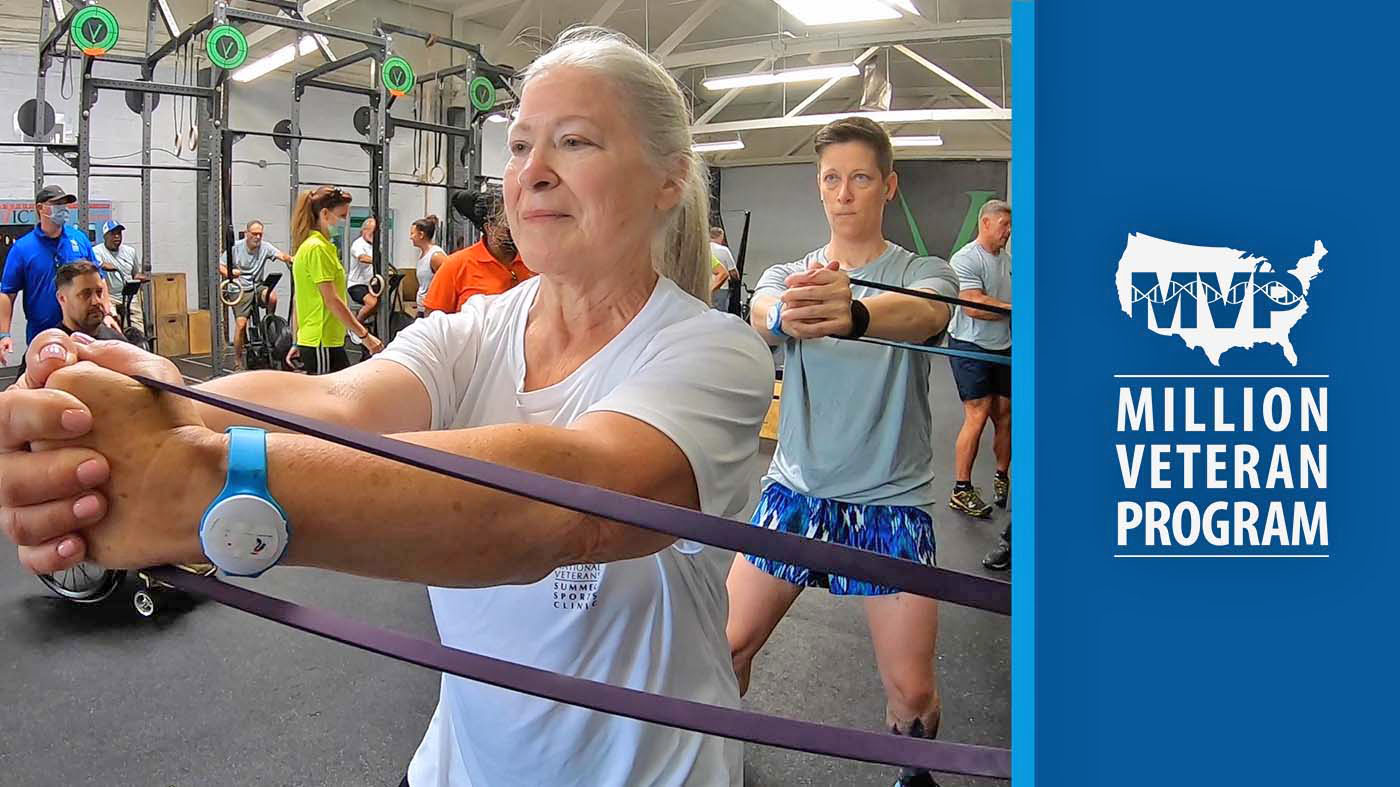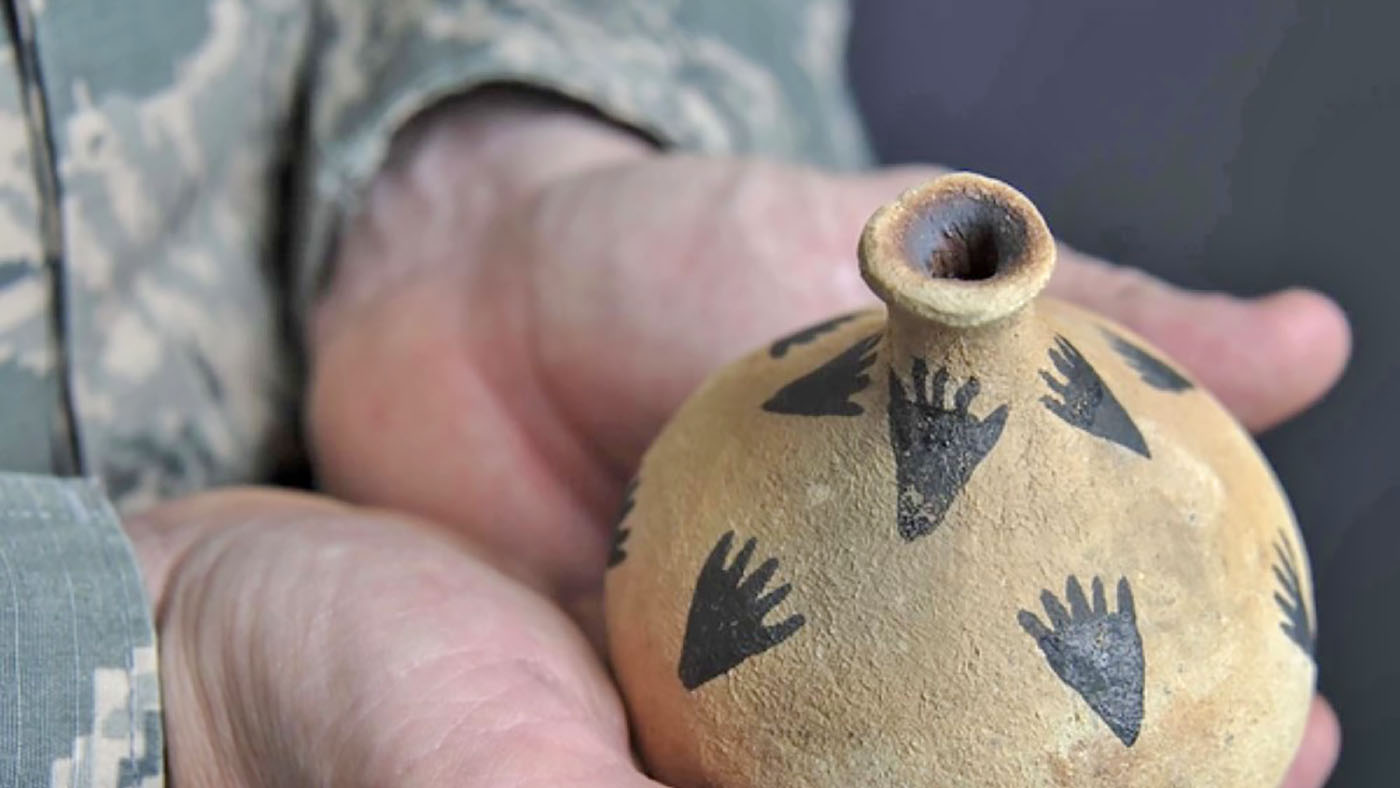Before physicians had science, they relied on the art of medicine, which, according to Hippocrates, consists of three things: the disease, the patient and the physician.
Former Denver VA Outpatient Physician, Dr. Stuart Smith, expanded this concept into a model he calls the Hippocratic Tripod. Dr. Smith’s version presents the tripod as the doctor-patient-illness relationship, upheld by the Hippocratic Oath, as research, practice and teaching. Through this model, Dr. Smith shares his message about the meaning of medicine, which he says has everything to do with community and clinical trust.
“I present to the patient, offering whole mind and body,” Dr. Smith said. “Medicine is human-to-human care.”
Dr. Smith knew he’d one day become a “country doctor” after receiving great care by the one he knew while growing up in a Western Massachusetts town of 400 hundred people. Years later, Smith deployed to Europe with the U.S. Army during the height of World War II. The experience of caring for his “comrades-in-arms” to his left and his right affirmed his path in life.
When he returned home, Smith went to medical school using the GI Bill. He followed that with an internship in Meeker, Colo., where he took care of pioneers and cowboys.
“We all drank from the same river; everyone knew everyone. They taught me how to be a doctor really,” Dr. Smith recalled.
In his 1987 book, Doctor Patient Knows Best, Dr. Smith chronicled his time as a small-town doctor in Meeker during the 1960s. The account shares how he knew patients as people—“their jobs, future hopes, home and family circumstances, and accepted the fact that these personal matters affect the outcomes of care in ways not always described in textbooks. This is part of care which needs preserving though, and record sharing does it, even in the face of an ever more impersonal technology.”
Dr. Smith’s patient-centered practice was affirmed by two of his teachers and friends, the late Dr. Ward Darley of the University of Colorado and Dr. Lawrence Weed of the University of Vermont. Both Darley and Weed laid down important groundwork in the medical field that is still used today in both VA and non-VA health care settings.
Their work was fundamental during the demobilization of World War II—a time when the country was facing a challenge to care for all the returning service members.
“There were about 1,000 civil service VA career doctors for 100,000 disabled war heroes gaming the Veterans hospitals to the wind sills,” Dr. Smith wrote.
On Jan. 3, 1946, President Harry Truman signed a law uniting medical schools with VA hospitals across the nation, forming a pivotal partnership that solved a crisis for returning sick and disabled Veterans. That move initiated our present federal residency training program for American medical specialists.
As president of the Association of American Medical Colleges, Dr. Darley stewarded the surge of student enrollment in the 1950s with the new VA-medical school partnership. Meanwhile, Dr. Weed introduced a system for organizing patient data and was the first to computerize patient records.
“Because they conceived ways of delivering understandable technology to all patients, these two are among the 20th century’s most important and perhaps least acclaimed clinicians and teachers,” Dr. Smith said.
Today
Now, more than 40 different health professions are represented by affiliations with more than 1,800 unique colleges and universities. According to VA: “Whether you receive medical care at a Department of Veterans Affairs (VA) facility or with a private provider, odds are your doctor has trained with VA at some point. In fact, almost 70 percent of United States-trained physicians have received training at a VA medical center or clinic…”
But at 95, Dr. Smith believes there’s still more work to do. He continues to share the lessons he’s gathered in research, practice and teaching as he wraps up his latest book, Wives and Mothers Sharing Tools of Primary Care.
When he’s not working on his book, you may find him at Golden VA Outpatient Clinic.
“I’m fortunate to be a patient here,” he said. “I can check on things from time to time.”
Terri Rorke is an Army Veteran and public affairs specialist at the VA Eastern Colorado Health Care System.
Topics in this story
More Stories
MVP’s research informs personalized care for Veterans, supporting whole health and beyond.
More than 4,000 American Indian/Alaska Native Veterans have been approved for the copayment exemption and we're here to help you apply for yours, too.
The screening is an important conversation with your VA health care provider. Here’s the reality behind common misconceptions.







“The experience of caring for his comrades in arms to his left and his right affirmed his path in life.”
A wonderful statement from a man who clearly understands his profession. Unfortunately, his wisdom has not permeated the current generation or VA professional MD’s who are content to receive a salary for less than full time work and, demonstrate less respect for their admired profession, when they place their personal safety at a higher level than that of the general public. I can only imagine what former combat medics and MD’s would say about the the current “professional” behavior of our VA. While I remain on my local VA clinic’s list for “telephone appointments”, I have received needed personal/physical medical care from dedicated professional MD’s outside the VA.
BTW … the VA cannot be defined as a “system”, it is rather an organization directed by PEOPLE, people who seem to enjoy having their organizational goals and personal/professional behavior motivated by the dictates of a bureaucratic “system.”
Sounds like an excuse I might have used to avoid placing my life in a “vulnerable” status back when I accepted the responsibility of being a healthy young male citizen capable of serving in the armed forces of our country.
Although I was not an MD, nor a medic, I did understand a responsibility to care for my “vulnerable” combat citizens and place their “vulnerable” lives on an equal priority as my own. I wonder if anyone who reads this will understand the thoughtful reasoning … or predictability just ignore it as the “emotional response” of an old combat veteran. Or perhaps it will sadly be written off as the thoughts of someone who doesn’t understand behavior required for the “greater good.”
THANK YOU FOR YOUR SERVICE ?????????
Interesting that my reply was not acceptable. It contained no profanity. It contained no political commentary. It was thoughtfully critical of the VA care. I accept that as an indication of the interest at our VA for honest criticism.
THANK YOU FOR YOUR SERVICE ???
[Editor: James, every comment goes into moderation queue. Your comment was approved.]